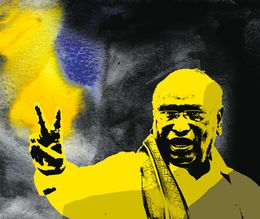Did journalists get Mallikarjun Kharge wrong? When Kharge won the election to the post of Congress president, only the sixth time that such a poll was held in the 137-year history of the party, the commentariat was less than impressed.
This scepticism had nothing to do with Kharge’s own impressive credentials. As a nine-time legislator, Kharge, 81, had always been a grassroots leader and a prominent dalit face of the Congress, who rose from poverty and hardship. But, in the high-profile face-off between him and Shashi Tharoor, Kharge seemed more ‘selected’ than elected. In other words, he was seen to be someone who was the preferred choice of the Gandhi family who would then continue to control him—and the party—by proxy.
Tharoor, with his eloquence, charisma and cult following among the rising numbers of aspirational India, seemed just like the disruption a party weighed down by the burden of status quo desperately needed. That may still be the case. Of course, the Gandhi family is still involved in every critical decision and retains veto power.
But Kharge has turned out to be more than a mere placeholder.
In fact, he has been a significantly successful reconciler so far.
In Karnataka, where D.K. Shivakumar, who brought hustle to the Congress game in the elections, was openly demanding the post of chief minister, instead of the more low-key Siddaramaiah (who had more of the legislators with him); Kharge managed to create a holding operation for governance.
But the real imprint of his authority and deftness is on the newly appointed Congress Working Committee (CWC), the highest decision making panel of the opposition party.
Just when it had begun to seem as if Tharoor was being sidelined and thus punished for running against Kharge and owning his ambition, he found a place on the panel.
Sachin Pilot, who has made no secret of his rebellion in Rajasthan, ahead of a critical election, was inducted as well, to at least temporarily assuage him. Another significant appointment was that of Manish Tewari, one of the signatories to the group of 23 Congress leaders who had first raised existential questions about the fate of the party.
Kharge seems to have a penchant for crisis management and the negotiator’s key skill—be flexible when needed and firm when the red line needs to be drawn. And in the last few months he has also shown the energy required to be a 24x7 politician, submerged in meetings and rallies.
Kharge does not come waving a magic wand. He may never be the sort of politician who captures the imagination of a wider, general population. And, of course, the Congress has structural problems—it will still have to answer the tough questions ahead of 2024. Is it fighting an ideological battle? What is that ideology in an increasingly polarised country? Is it ready for a clash of personalities in taking on Narendra Modi?
But for a party bruised by electoral defeats, listless leadership and confusion at the very top for months altogether, he proved to be an effective pivot. It turns out that those who wrote him off underestimated him.
editor@theweek.in


